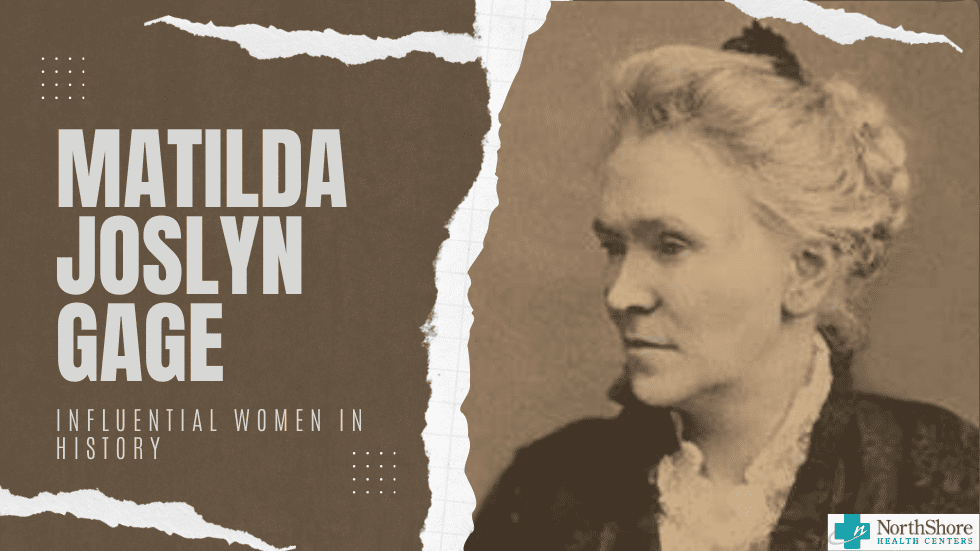Women’s History Month: Matilda Joslyn Gage

Matilda Joslyn Gage was many things. According to history sources, she was “a pioneering suffragist, abolitionist, Native American rights advocate, a humanitarian, and a visionary.”
Matilda was born in 1826, and would make the first of many public speeches in 1852, at the National Women’s Rights Convention in Syracuse, New York. At just 26 years of age, her speech spoke to the underserved and oppressed. She argued that slavery and the limited rights of women stemmed from the same patriarchal views of society as a whole. She established herself as a pillar of the women’s rights movement from that moment forward.
Along with Susan B. Anthony and Elizabeth Cady Stanton, Gage formed the National Woman Suffrage Association (NWSA) in 1869. Gage didn’t just speak about her thoughts on how women should be able to vote, she acted upon them. In 1871, she organized women to attempt to vote, facing fines and charges. By 1886, her communications also included organizing protests. At the unveiling of the Statue of Liberty, Gage and her fellow protestors argued it was hypocritical to depict liberty as a woman when actual American women were denied political and social rights. According to The History Channel, she was quoted as saying, “It is the sarcasm of the 19th century to represent liberty as a woman while not one single woman throughout the length and breadth of the land is as yet in possession of political liberty.”
Gage should also be remembered as an abolitionist. She was born into a like-minded family, and grew up with her childhood home being a refuge in the Underground Railroad. Throughout her adult life, the home she settled into with her husband in New York was used as a station for slaves escaping to freedom. Gage was one of few in her town of Fayetteville to sign a statement “promising to provide assistance to any slave trying to escape the South.” During the Civil War, Gage supported the Union by organizing supplies and raising funds. She was constantly under scrutiny and surveillance, but never let that deter her from speaking against slavery, standing up for women’s rights, and recognizing Native Nations sovereignty while also fighting for native treaty rights.
Matilda Joslyn Gage not only used her voice for the rights of women, but also for their recognition. She was outspoken about how so many contributions to science (and history!) were made by women, who would never receive the credit. She was adamant this was because of their gender and not the quality of their work. Her theories have been utilized many times since her first speech, and has even been dubbed “The Matilda Effect.” It also doesn’t surprise us to find out that most of us haven’t heard about her contributions to history – she was likely just as much a victim of the Matilda Effect as she was saying others had been and would continue to be, until we had equal rights for men and women.
Gloria Steinem named Gage “the woman who was AHEAD of the women who were AHEAD of their time.” She was also the woman ahead of the Wizard of Oz, perhaps? Her thoughts and ideas on female power and matriarchy are key elements of The Wonderful Wizard of Oz and its sequels. Coincidentally (or not!), these books were authored by L. Frank Baum, who married Matilda’s daughter Maud.
Matilda Joslyn Gage died, age 71, in 1898 and was buried in Fayetteville Cemetery. Her headstone showcases one of her lifelong mottos: “There is a word sweeter than mother, home, or heaven – that word is liberty.” Gage fought for that liberty for each and every one of us.
Join us every week this month, while we celebrate influential women during Women’s History Month.



